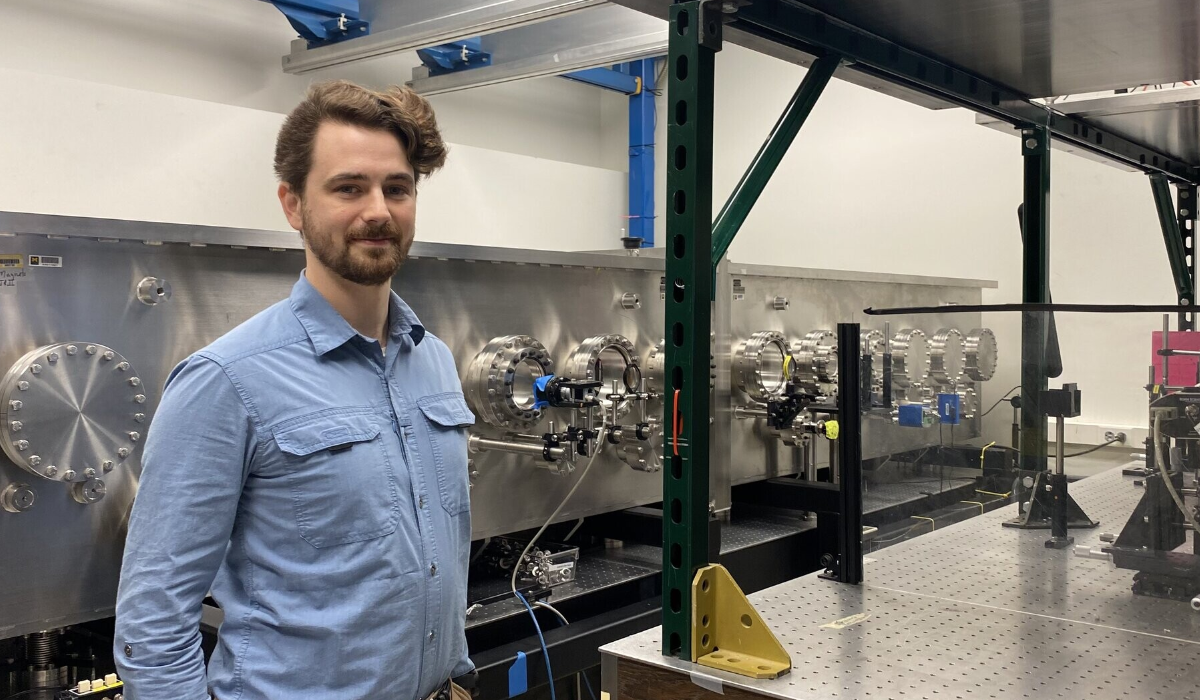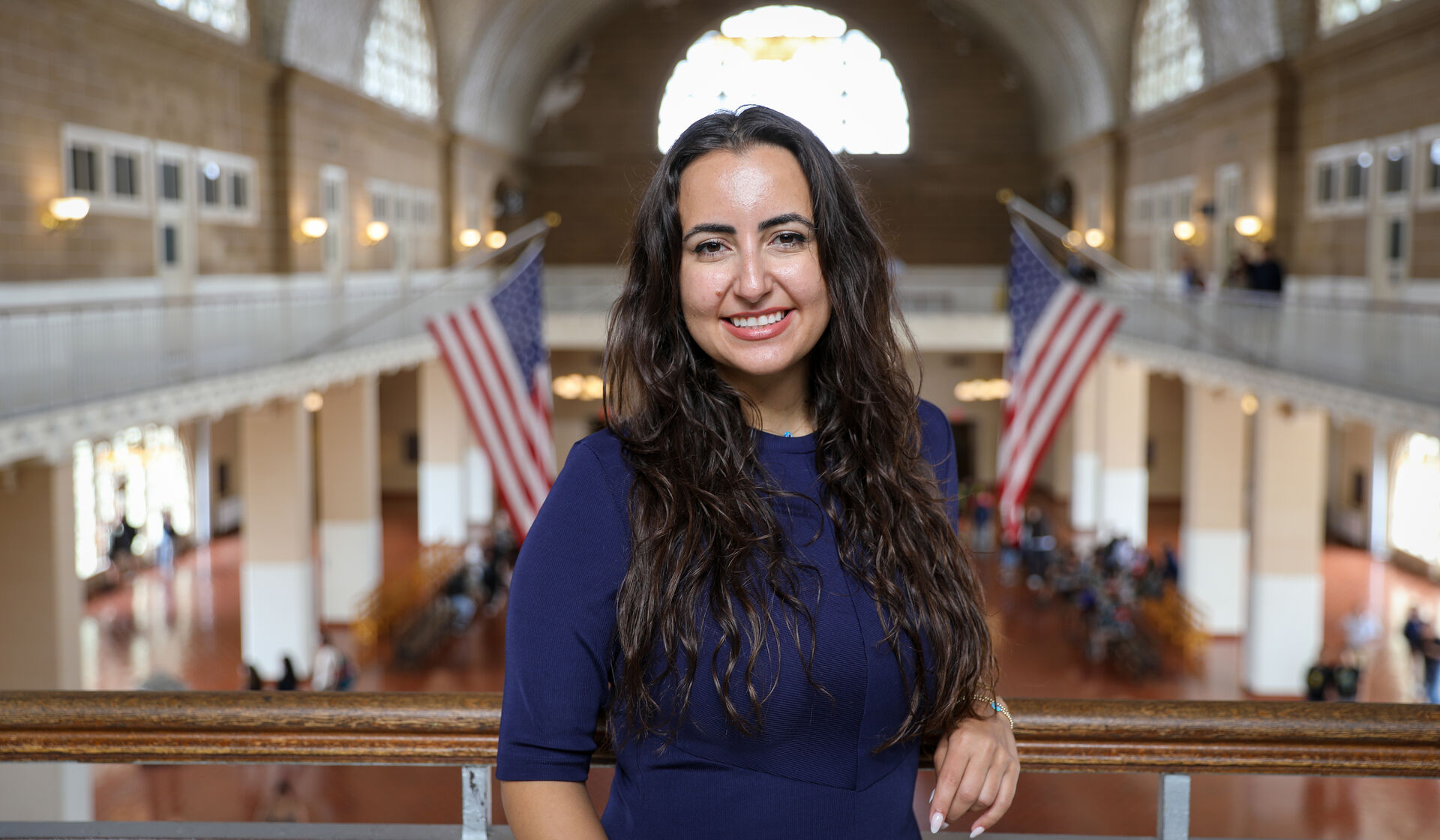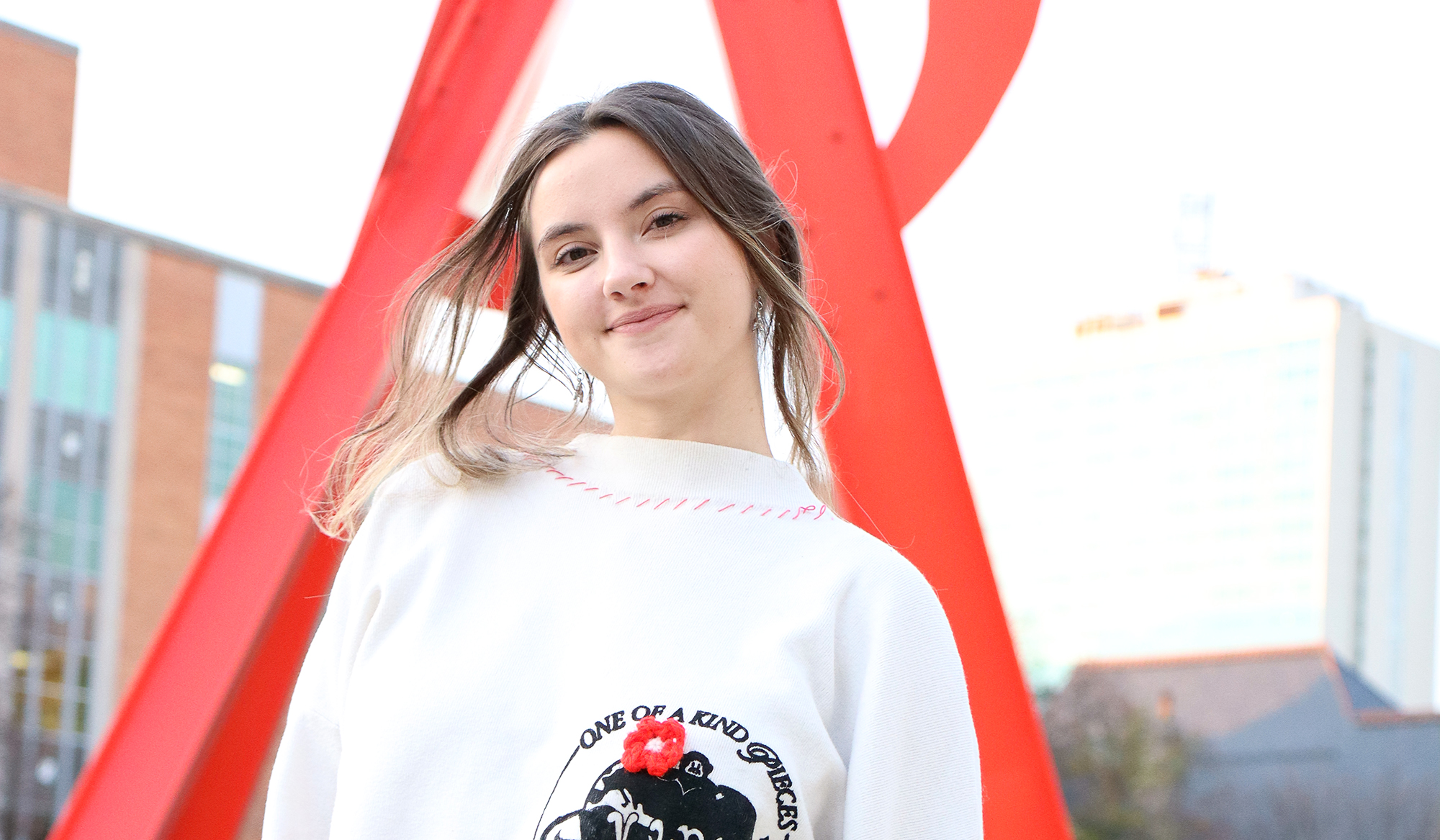Jason Cardarelli is a Ph.D. candidate in nuclear engineering focusing on laser-wakefield acceleration. He works closely with the ZEUS (Zetawatt-Equivalent Ultrashort pulse laser System) laser, which will soon be the most powerful laser in the United States.
Cardarelli has been interested in physics since middle school. He received his bachelor’s degree from the University of South Florida, where he studied materials science, but chose to pursue plasma physics for the wealth of research and application opportunities it offered.
“A wide swath of interesting applications and pure science led me from [material science] to here,” Cardarelli says, recalling that the decision to pursue his Ph.D. at U-M was far from difficult, as the nuclear engineering program is the best in the country.
ZEUS is taking the place of the HERCULES laser and construction has been ongoing for the last two years. In the meantime, Cardarelli has been able to travel around the world for experimental opportunities.
“[Traveling] gave me an opportunity to not only play with other laser systems but also meet leaders in our field all over the world. Even though I haven’t had the ZEUS or HERCULES laser systems at my disposal for most of my Ph.D. program, I’ve still gotten a lot of unique opportunities.”
In September, Cardarelli was the main local student collaborating on the “first light” experiment, led by Franklin Dollar, MSE’10, PhD’12, a researcher from the University of California, Irvine. The experiment used just 1 percent of ZEUS’s eventual 3 petawatts of maximum power.
“With the ZEUS upgrade, we’re stepping through to a new threshold of quantum electrodynamic experiments that we can achieve. This means particle beam and intense laser pulse collision experiments. In the U.S., we hadn’t had a system, in the high-power regime that ZEUS will be, to consistently do these experiments and get good results,” Cardarelli says.
Now, as a fifth-year Ph.D. student, Cardarelli is beginning to consider what he’d like to do with his degree. He’s interested in pursuing academia, as the opportunities for research in his field are “abundant,” but an exciting, upcoming milestone could change his plans.
“My wife and I are expecting a child in December. Having a kid frames what you do for work in a certain way, I’m always considering that now. I want my work to contribute to a good world for them. That’s the goal.”
Katherine Fiorillo is the editor of Michigan Alum.





